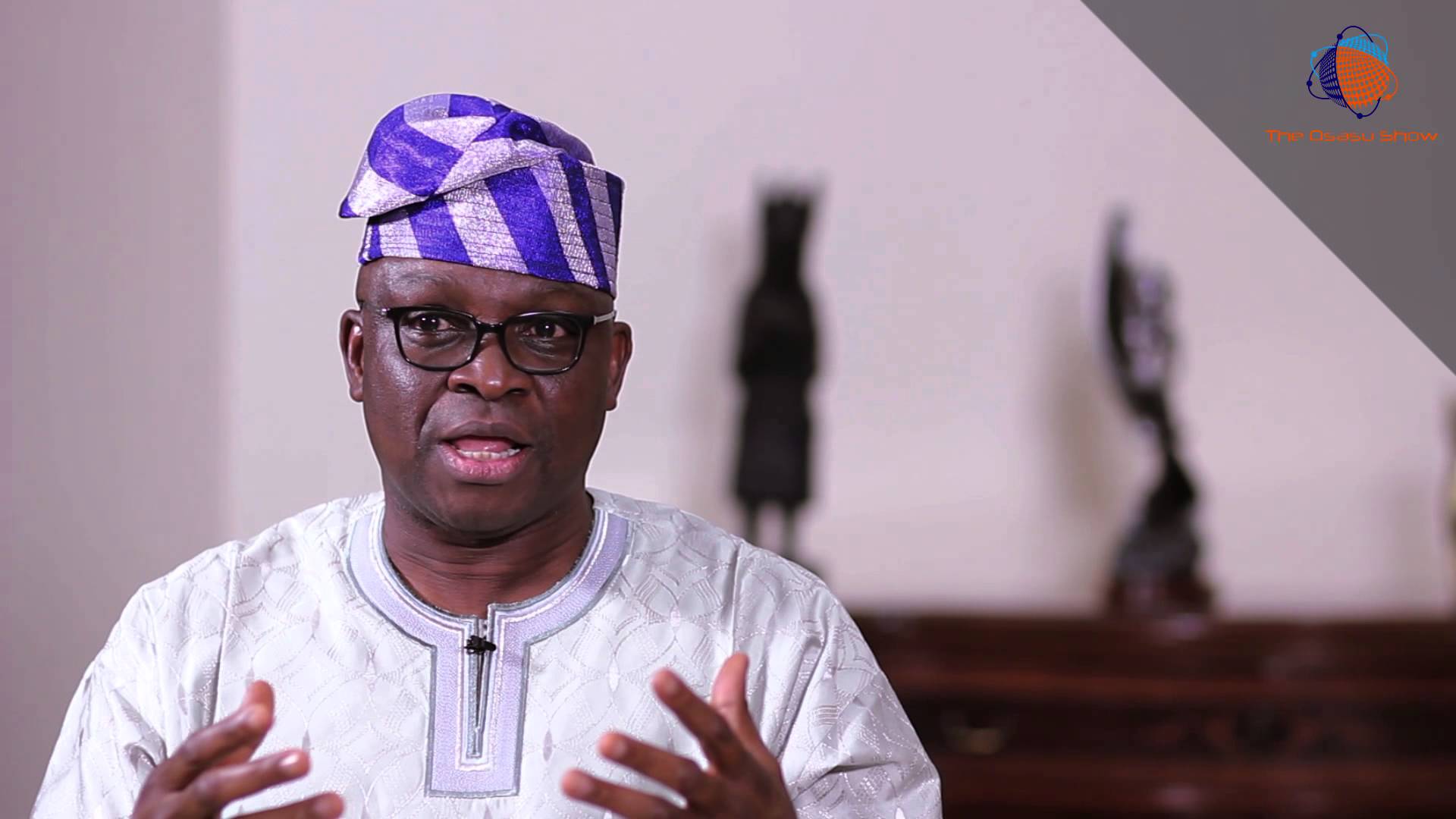- Fayose Raises the Alarm over Herdsmen Planned Invasion of Ekiti
Following the killings of scores of people in Benue and Taraba States by suspected Fulani herdsmen, Governor Ayodele Fayose of Ekiti State yesterday raised the alarm over security report that herdsmen have taken over the state forest reserves and were allegedly using the avenues as covers to unleash mayhem on the state.
Condemning the killings and branding it as alleged “ethnic cleansing,” Fayose urged President Muhammadu Buhari to urgently declare rampaging herdsmen as terrorists, predicating this on the recent massacre in Benue State and other parts of the country.
The governor, who raised the alarm that some persons identified as Fulani herdsmen fondly called the ‘Bororo’ were making a surreptitious move into the outskirts of Ekiti State with an alleged aim to kill and maim people and rubbish his anti-grazing law.
Based on the alleged report, Fayose met with all the local hunters from the 16 local government areas of the state and charged them to secure the state with all their might, saying: “If you have charms don’t forget to use it and make them sleep off, because your people must not be killed.”
Fayose, while addressing the people of the state and the local hunters at the Government House in Ado Ekiti, said: “Mr. President declare herdsmen as terrorists group now, they are mindless, Godless and devilish.”
Sympathising with those who fell victims in Benue State, he added: “ I sympathise with our brothers, sisters and people from Benue State that are mourning the brutality of those who killed their kinsmen.”
The governor, who observed a minute silence for those who died in Benue State, wore a military uniform to confirm his readiness for the looming guerrilla battle.
He said: “This (uniform) is done to charge our hunters to secure the state. I saw pictures of the killings and I wondered if those were human beings.
“I asked the questions if people could be that picked to kill human beings that way. They will find no peace. It is no tribal killings but that of mindless people. Blood of the departed will find those people and they won’t know peace. It is the duty of the federal government to protect its people. We are not protected.
“We have never had it so bad. People must come to leadership with conscience. The federal government should have sent the army not the police.
“Governor Samuel Ortom of Benue State should fasten his belt and protect his people. Those seeking help in Abuja would not find because Abuja also needs help. I sympathise with you, this is your home and nobody will kill you. You are all saved here,” he said.
Speaking further, the governor added: “I have received letters that the Bororos have entered our reserves, they want to violate our laws. I want to call on the attention of the federal government that they have come and wanted to kill men and kids and women in Ekiti. We will not allow that to happen. I want you all the hunters to go back today to protect your people, be vigilant, open your eyes, make sure everyone entering our state is screened.
“No one in the guise of grazing should enter our land after 8p.m. For our brothers who harbour criminals, tell them Ekiti State is a no go area.
“If your plan is to make this state ungovernable, you are wasting your time. I have called this meeting for everyone to be vigilant. I will begin to support you now to secure Ekiti State.
“Don’t take laws into your hands but defend our people. Protect our people check all arrivals at night coming in the guise. I am making a line available where you can recall distress calls. I trust you that you can secure our people. I want to appeal to our people from Benue to pray for your state and your governor.
“I also leant that they want to come and be arresting people for no reasons. They would meet Gods hand in it. My hunters, you know Ekiti State very well. Protect the state. We will be having monthly meetings.”


 Naira3 weeks ago
Naira3 weeks ago
 News4 weeks ago
News4 weeks ago
 Naira4 weeks ago
Naira4 weeks ago
 Travel3 weeks ago
Travel3 weeks ago
 Naira3 weeks ago
Naira3 weeks ago
 Jobs3 weeks ago
Jobs3 weeks ago
 Naira3 weeks ago
Naira3 weeks ago
 Investment4 weeks ago
Investment4 weeks ago





























